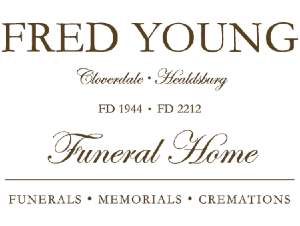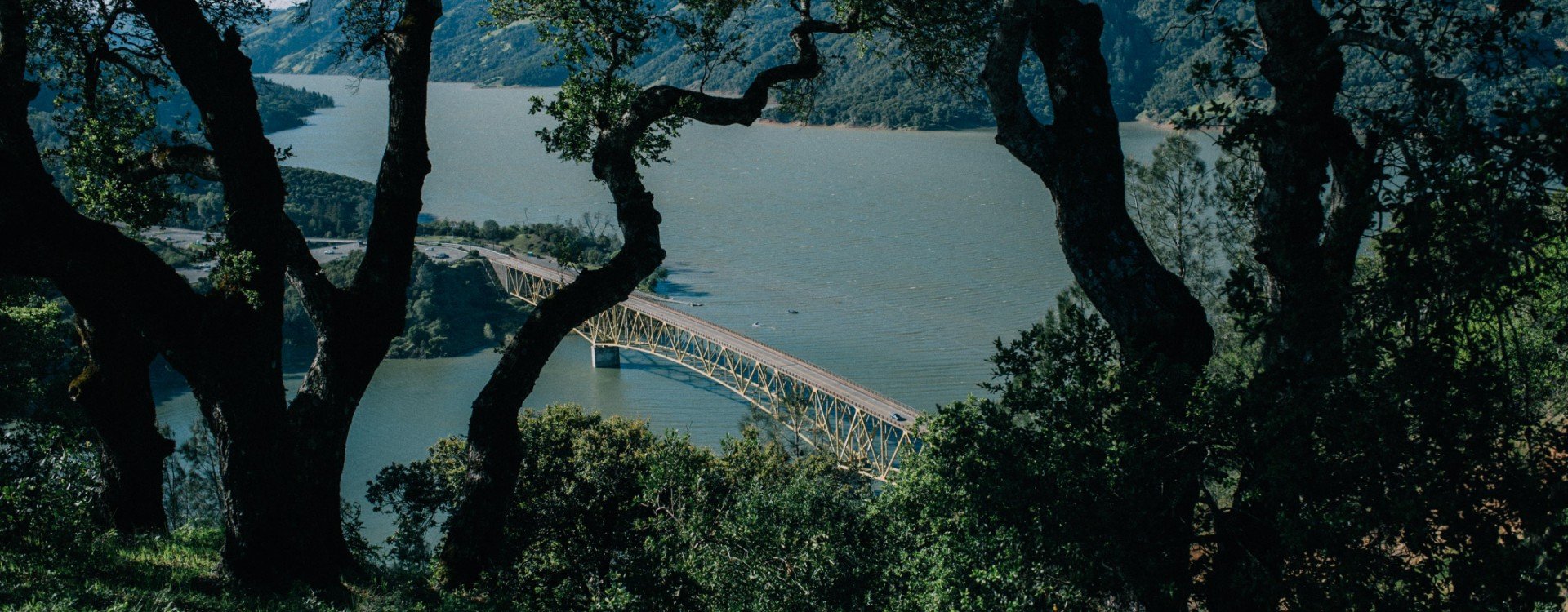contact us: (707) 894-2540 | ONLINE ARRANGEMENTS
Your Questions
What must I do if a loved one passes away at home?
If the loved one is under hospice care, call hospice and have them call us at 707-894-2540. If the loved one is not under hospice care, call your local police department and let them know that there has been a home death.
Will someone come right away?
Yes. If the family wishes to spend a short time with the deceased to say good-bye, it’s acceptable. They will come when your time is right.
What happens next?
The funeral home will transport your loved one to the funeral home to begin preparations. Usually, the following day the Funeral Director will meet with the family to go over the type of service (hyperlink to Our Services Your Way) desired and the specific details of the service.
Who will handle the obituaries?
We are happy to assist you in placing the obituary in the publications of your choice. If desired, we can take care of the details. We can also work with you to accomplish this goal.
What type of service should I have?
Funeral directors are trained to help families arrange the type of service (hyperlink to Our Services Your Way) they desire. The service is usually held at a place of worship or at the funeral home. The service may vary in ritual according to religious denomination or the wishes of the family. The presence of family and friends at this time is an acknowledgment of friendship and support. It can also be an opportunity to remember and celebrate (with mementos and shared stories) the life of your loved one.
A funeral service is a service at a place of worship or funeral home where the body is present.
A private service is by invitation only where selected relatives and a few close friends attend the funeral service.
A memorial service is a service without the body present and can vary in ceremony and procedures according to the family’s requests. Such a service is also known as a Celebration of Life or Home-Coming.
Why have a public viewing?
Viewing is part of many cultural and ethnic traditions. Many grief specialists believe that viewing aids the grief process by helping the bereaved put closure to the death.
What is embalming?
Embalming is the process of preserving remains, typically so that it can be viewed at a funeral ceremony. Generally, when embalming does not occur within several days of a person’s death, their body will begin to decompose. To ensure that this does not happen, preserving chemicals will be used so that the body of the deceased can be viewed at an open-casket funeral. Today, embalming is done by injecting chemicals directly into the bloodstream to preserve the corpse’s appearance. The most commonly used chemicals for embalming are formaldehyde and ethanol. A combination of these two chemicals is sufficient to preserve the body for a short time.
What is the purpose of embalming?
Embalming sanitizes and preserves the body, retards the decomposition process, and enhances the appearance of a body disfigured by traumatic death or illness.
Embalming the body enables mourners to view the deceased if they wish. The emotional benefits of viewing the deceased are enormous, particularly to those having difficulty dealing with the death.
Is embalming required?
Embalming is not required unless you are having a public visitation, open-casket funeral, transferring the body on a commercial airline or if the cemetery where interred requires.
Can I have a visitation period and a funeral service if cremation is chosen?
Yes. Cremation does not preclude having a visitation period and a funeral service. Cremation is simply one option for final disposition of the body.
How do most people pay for funeral expenses?
A large number of families use funds that were set aside in funeral pre-arrangements ahead of time. Others may pay with cash, checks or a credit card, and some families rely on life insurance to pay for funeral expenses.
What are cash advances?
These are expenses that the funeral home pays on your behalf and includes on your invoice. Cash advances consist of death certificates, funeral notices, flowers, clergy honorariums and other miscellaneous expenses.
If I choose cremation, can I still have a funeral?
Yes you may. We call that our traditional cremation service. The only difference between the traditional cremation service and traditional service is that your loved one will be cremated instead of buried or entombed.
What is the cremation process?
Cremation is another form of disposition or handling a body after death. The body is placed in a cremation container or casket and positioned inside the cremation chamber located within a crematorium. The cremation chamber creates an intense heat that reduces the body to bone fragments in approximately 2-3 hours.
Once finished, the remains are collected and processed to the consistency of sand or a finer ash. These are then sealed in a transparent plastic bag along with an identification tag. The cremated remains weigh about 5 lbs. They are usually returned to the family in a selected urn, which can then be buried, placed in a niche inside a columbarium, taken home or transported for scattering. Additionally, the cremated remains can be separated and placed into multiple urns, keepsakes or even jewelry specifically designed as a final resting place. (link to brochure).
Can I make my wishes known prior to death?
Yes you may and it is highly recommended. You may call us at 707-894-2540 and let us know that you would like to make pre-need mortuary arrangements (hyperlink to Pre-planning in Our Services Your Way) and we will make an appointment with one of our pre-need counselors.
Do I need to contact Social Security?
No, we will do that for you.
Why do I need a death certificate?
You may not need to order any death certificates but we are required to create and file a death certificate for anyone who has passed away. It is a legal record of death, showing date, time, place and causes. Death certificates are needed for life insurance policies, retirement and bank accounts.
What do Funeral Directors do?
A funeral director, also sometimes referred to as a mortician or undertaker, is a licensed person who arranges the details and handles the logistics of funerals. He or she interviews the family to learn their wishes about the funeral, the clergy or other people who will officiate, and the final disposition of the remains. They also comfort the family and friends of the deceased. Funeral directors prepare obituary notices and place them in newspapers, arrange for pallbearers and clergy, schedule the opening and closing of a grave with a representative of the cemetery, decorate and prepare the sites of all services, and provide transportation for the deceased, mourners, and flowers between sites. They also direct preparation and shipment of the body for out-of-State burial. Most funeral directors also are trained, licensed, and practicing embalmers.
For more information, we have created a Checklist and Glossary
Cloverdale
Fred Young Funeral Home FD#1944 | 428 N. Cloverdale Blvd. Cloverdale, CA 95425 | Email: elfyinfo@srmp.org | Phone: (707) 894-2540
Healdsburg
Fred Young Funeral Home FD#2212 | 718 Healdsburg Ave. Suite F, Healdsburg, CA 95446 | Email: elfyinfo@srmp.org | Phone: 707-473-8431
Santa Rosa
Eggen & Lance Chapel FD#240 | 1540 Mendocino Avenue, Santa Rosa, CA 95401 | Email: elfyinfo@srmp.org Phone: (707) 545-3747
Santa Rosa Mortuary FD#1779 | 1900 Franklin Ave., Santa Rosa, CA 95404 | Email: elfyinfo@srmp.org | Phone: (707) 545-3747




